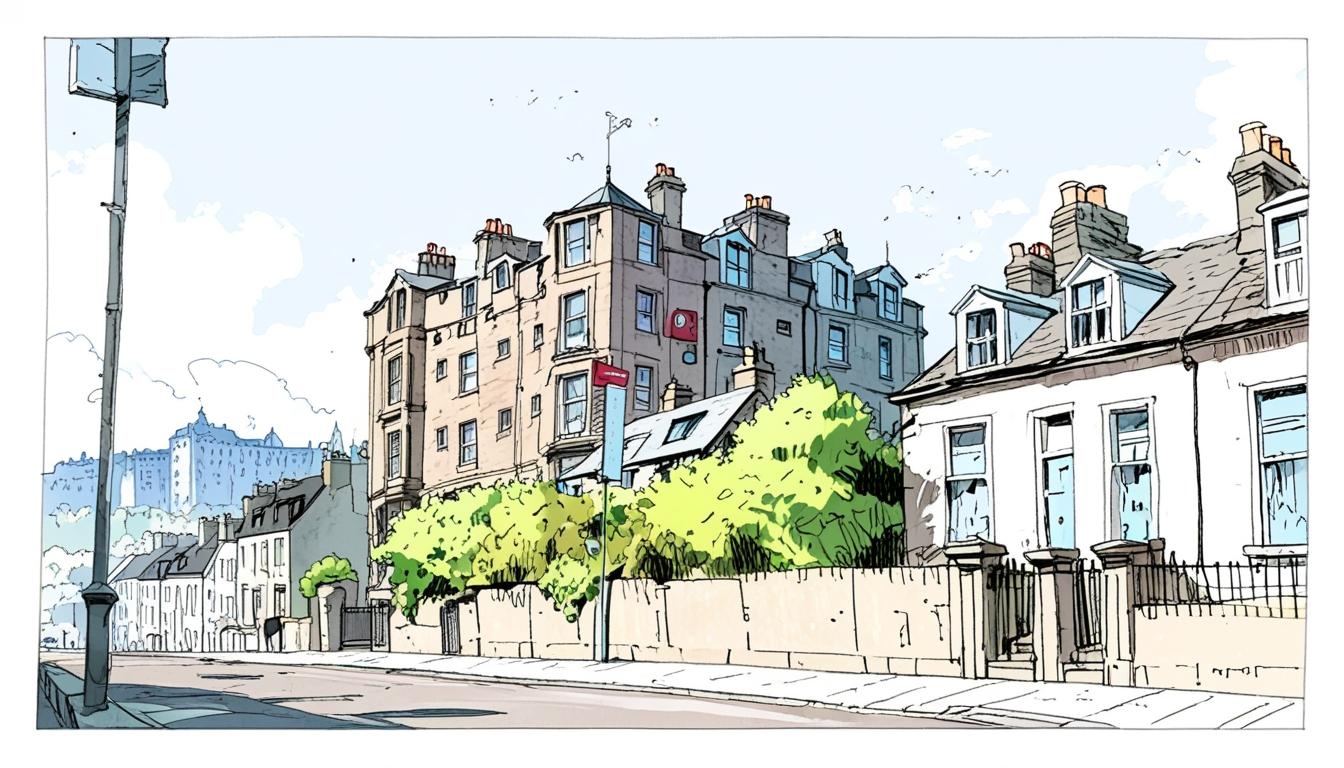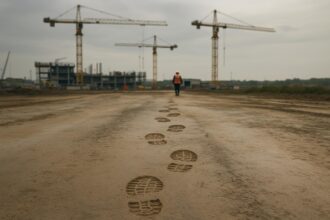New figures reveal Edinburgh City Council’s 200% council tax surcharge on second homes and changes to tax relief on long-term empty properties have led to notable declines in both categories, aiding efforts to increase housing availability and ease market pressures.
Edinburgh City Council’s recent policies aimed at increasing housing availability have led to a notable decline in the number of second homes and long-term empty properties across the city, new figures reveal.
Following the Scottish Government’s approval for local authorities to impose council tax rates on second homes of up to 100%, Edinburgh instituted a 200% council tax surcharge for second home owners. This measure was introduced to encourage more permanent occupancy of homes amid concerns over the local housing market, which has experienced rising homelessness rates and escalating property prices.
A second home, according to the council’s definition, is any furnished property that is occupied for at least 25 days per year but is not the owner’s main residence. This definition includes short-term lets available for fewer than 140 nights annually. When the surcharge proposal was presented to councillors in January 2024, it was estimated there were approximately 1,700 second homes within the city.
Recent data shows that the number of second homes fell to just over 1,500 by April 2024 when the surcharge came into effect, decreasing further to 1,452 as of last month. This represents a 15% reduction in second homes across Edinburgh since the policy’s implementation. The funds generated from the surcharge in its first year totalled £2.7 million, exceeding the council’s original target of £2.25 million. Officials had previously projected that the 200% surcharge could eventually raise an additional £3.2 million annually.
In addition to measures targeting second homes, the council also ended its tax relief on non-domestic properties that remain empty for longer than three months from April 2024. While a 50% discount still applies to empty commercial properties for the first three months of vacancy, the 10% discount previously granted thereafter was removed to incentivise bringing more vacant buildings back into use.
The number of long-term empty properties has fallen from 1,699 in April 2024 to 1,493 as of last month. Income collected from these properties by the end of March 2025 reached £7.4 million, surpassing the annual target of £7 million.
A council report noted: “While the policy remains fit for purpose, it should be noted that the existing Scottish Government budget arrangements for long-term empty properties ends on 31 March 2026.” The policy is scheduled for an annual review in December 2025, which will assess whether adjustments are necessary based on any changes in the Scottish Government’s funding allocations.
These initiatives by Edinburgh City Council reflect ongoing efforts to alleviate pressure on the housing market by encouraging the use of existing properties as primary residences and reducing long-term vacancies across the city.
Source: Noah Wire Services
- https://www.gov.scot/publications/second-homes-and-empty-properties-in-september-2024/ – This source confirms the decrease in the number of second homes in Scotland, noting a 10% decline, the biggest in a decade, linked to local authorities’ ability to impose higher council tax premiums on second homes as of April 2024, supporting Edinburgh’s policy effects on second home reduction.
- https://www.gov.scot/binaries/content/documents/govscot/publications/statistics/2024/12/second-homes-and-empty-properties-in-september-2024/documents/empty-and-second-homes-september-2024/empty-and-second-homes-september-2024/govscot:document/Empty+and+Second+homes%252C+September+2024.pdf – This Scottish Government report provides detailed statistics confirming the drop in second homes around 2024, supporting the article’s figures and timeline for changes in second home numbers in Edinburgh linked to new council tax surcharges.
- https://emptyhomespartnership.scot/local_authorities/city-of-edinburgh-local-authority/ – This page from the Scottish Empty Homes Partnership provides insight into long-term empty properties in Edinburgh, indicating trends in empty homes and supporting the article’s claim about the reduction in long-term empty properties in the city following policy changes.
- https://www.insidehousing.co.uk/news/73-of-empty-homes-in-scotland-vacant-for-over-a-year-89819 – This Inside Housing news article reports on the decrease in second homes and the increase in properties brought back into use in Scotland, attributing changes to council tax policies, thus supporting the article’s claims about council tax surcharges incentivizing occupancy.
- https://consultationhub.edinburgh.gov.uk/sfc/lhs-phase-3/user_uploads/lhs-2025-30-draftv.18.pdf – The Edinburgh Local Housing Strategy draft provides background on local housing market challenges and council strategies, underpinning the context of rising homelessness and property pressures addressed by the council tax measures described.
Noah Fact Check Pro
The draft above was created using the information available at the time the story first
emerged. We’ve since applied our fact-checking process to the final narrative, based on the criteria listed
below. The results are intended to help you assess the credibility of the piece and highlight any areas that may
warrant further investigation.
Freshness check
Score:
9
Notes:
The information appears recent, referencing policy introductions and results from 2024 to early 2025. No indication that it is recycled or outdated.
Quotes check
Score:
6
Notes:
There are no direct quotes found in the narrative. This makes it difficult to assess originality and authenticity of spoken or cited text.
Source reliability
Score:
8
Notes:
The narrative originates from the Herald Scotland, a known publication. However, specific details or documents from the council would enhance reliability.
Plausability check
Score:
8
Notes:
The claims about policy impacts on second homes and empty properties are plausible. They align with typical government measures to address housing issues.
Overall assessment
Verdict (FAIL, OPEN, PASS): PASS
Confidence (LOW, MEDIUM, HIGH): HIGH
Summary:
The narrative appears to be recent and plausible, originating from a reputable source. While there are no direct quotes to verify, the policy details and outcomes seem credible based on common government initiatives.













